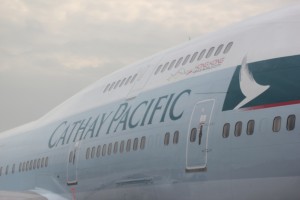Finally! Guangzhou to get 72-hour visa-free stays… at the end of the year
Posted: 02/21/2013 9:30 amIf you have friends and family who want to visit, this is good news.
Guangzhou is set to introduce 72-hour visa-free stays at Baiyun Airport for inbound visitors by the end of the year in a bid to spur on the province’s weak tourism market. It follows Shanghai and Beijing, both of which also implemented 72-hour visa-free stays.
A special conference was held to look at ways to address Guangdong’s lack of tourism appeal, where the visa policy change was announced. The move will give Guangdong a chance to showcase it’s tourism credentials.
Beijing and Shanghai introduced their waiver at the start of this year, encouraging hassle-free short-stays for travellers in 45 countries, leaving the south of the country isolated.
Arics Lam, the General Manager of The China Hotel, A Marriott Hotel told TheNanfang.com last year that more could be done to promote Guangdong to overseas visitors:
Arics is one of many general managers in discussions with the Guangzhou Tourism Bureau on how hotels can work together to help promote the city. “We’re suggesting repositioning Guangzhou. Going into the international market is important. How we can propose to government bodies how we can form something to promote the city.”
With warning signs down the road, at least in Guangzhou, hoteliers hope to work more closely with the tourism bureau to drum up business. Bosses are also hoping for more trade fairs and exhibitions to soak up supply. Horwath Asia Pacific notes the bi-annual Canton Fair can result in 40 per cent of total annual revenue for major brands.
Here’s some data from the tourism authority cited in WCARN:
According to the data provided by Tourism Administration of Guangdong Province, the number of inbound overnight visitors increased 4.74% in 2012 by comparing to 2011, while the number of inbound visitors through ports was 107.95 million, down 2.6% by comparing to 2011.
Authorities will, at last, be able to address the imbalance between business and leisure travellers.
Guangdong has not been immune from the global financial crisis and in recent years some southern cities have taken a bigger hit with the lion’s share of business travellers scaling back spending.
Images: Taiyofj/Flickr

 0
0

 1K
1K








